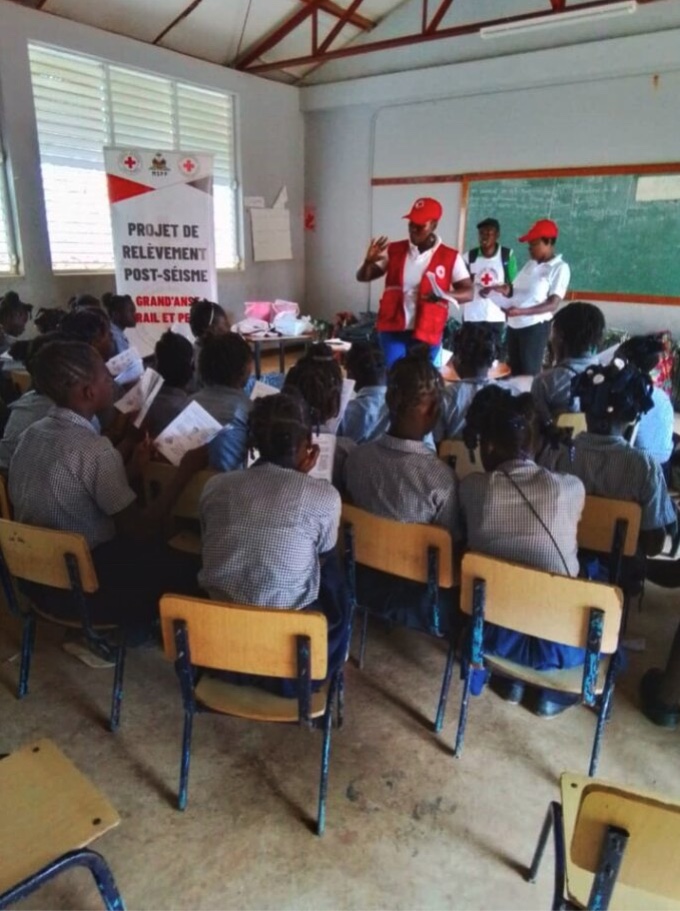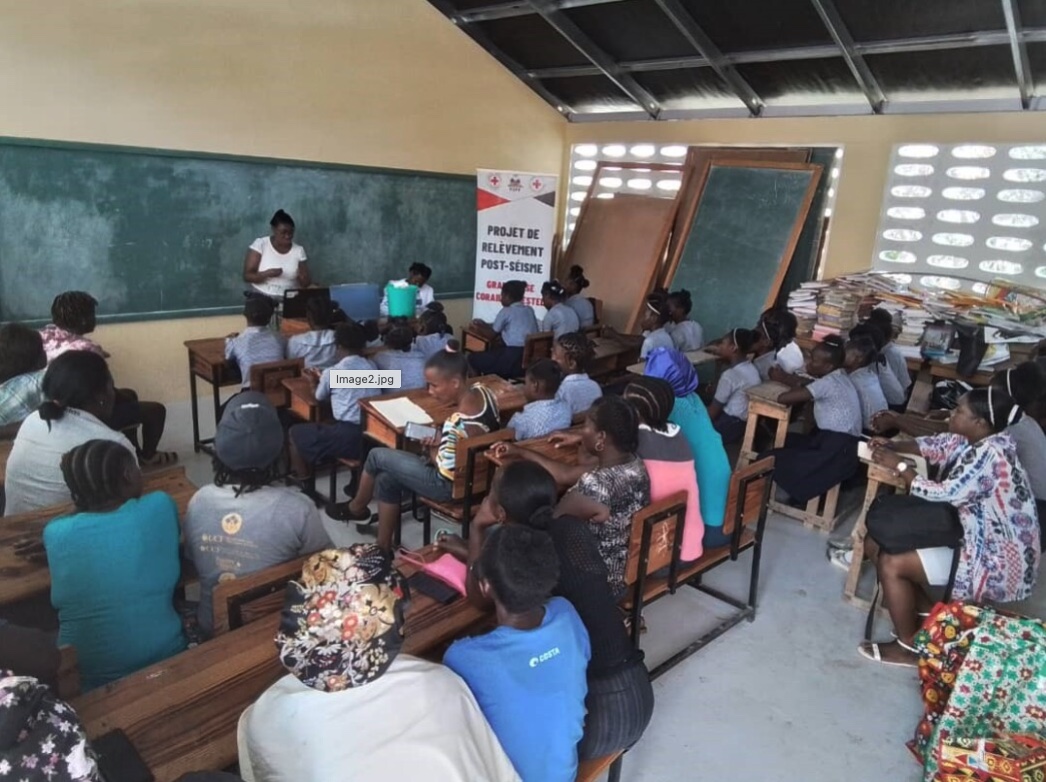Despite legal advances to address gender inequality and discrimination against women and girls in Haiti, economic limitations and the stigma associated with menstruation still prevent women from exercising their full rights.
In communities like Corail and Pestel, where rain is one of the main sources of water supply, contaminated water has created a barrier to effective hand washing and washing reusable sanitary pads, both crucial for maintaining menstrual hygiene.
In an effort to de-stigmatize menstruation, the Canadian Red Cross collaborated with the Haitian Red Cross and the Ministère de l’Éducation nationale et de la Formation Professionnelle to distribute menstrual hygiene kits to 300 girls in 25 public schools in Corail and Pestel, located in the Grand’Anse department.
The distribution of these kits, containing basic items to meet their essential needs over three months was combined with information sessions on the menstruation process.

"I really appreciated the kit, especially as these products are expensive and rare on the market,” says Sophia, a student at École Nationale in Pestel. “We can put the money towards something else. I appreciate the way the distribution was done. But there are other girls in need, and I hope that the Red Cross will carry on with this project to help them," she suggests.
On International Menstrual Hygiene Day, the Canadian Red Cross team, with the support of local Haitian Red Cross committees and the principals of the participating schools, held group discussions with 40 adolescent girls who received menstrual hygiene kits.

In addition to sharing experiences about how they benefited from the kits, the purpose of these discussions was to normalize menstruation, advocate against biases, and build resilience.
Like many young Haitian women of her age, Belance didn't really know how to use a menstrual pad or what hygiene practices to apply during her period, leading to discrimination from others. The distribution activities and information sessions on menstrual hygiene carried out by the Red Cross helped her make that connection.
"Now, thanks to the Red Cross, I have my own personal items. Before, I used to spend a whole day with just one pair of underwear and a blood-soaked pad,” says Belance, a student in at École Nationale de Sain Jean Bosco in Corail.“At the training session, I learned about the risks involved and how many times a day I have to change pads and clean myself. Everything I received in the kit was useful and I'm very pleased, because my parents couldn’t afford all these items."
In some communities, young women are forced to miss school and social activities during their periods due to a lack of adequate infrastructure and readily available hygiene products.
"I am grateful to the Red Cross for the training. I learned how to use pads and how to keep track of my menstrual cycle, which could help me avoid getting pregnant,” says Daphcar, a student at École Nationale Bernard Première in Pestel. “When I received the kit, it was very useful, because I didn't have all these things and I really needed them."

